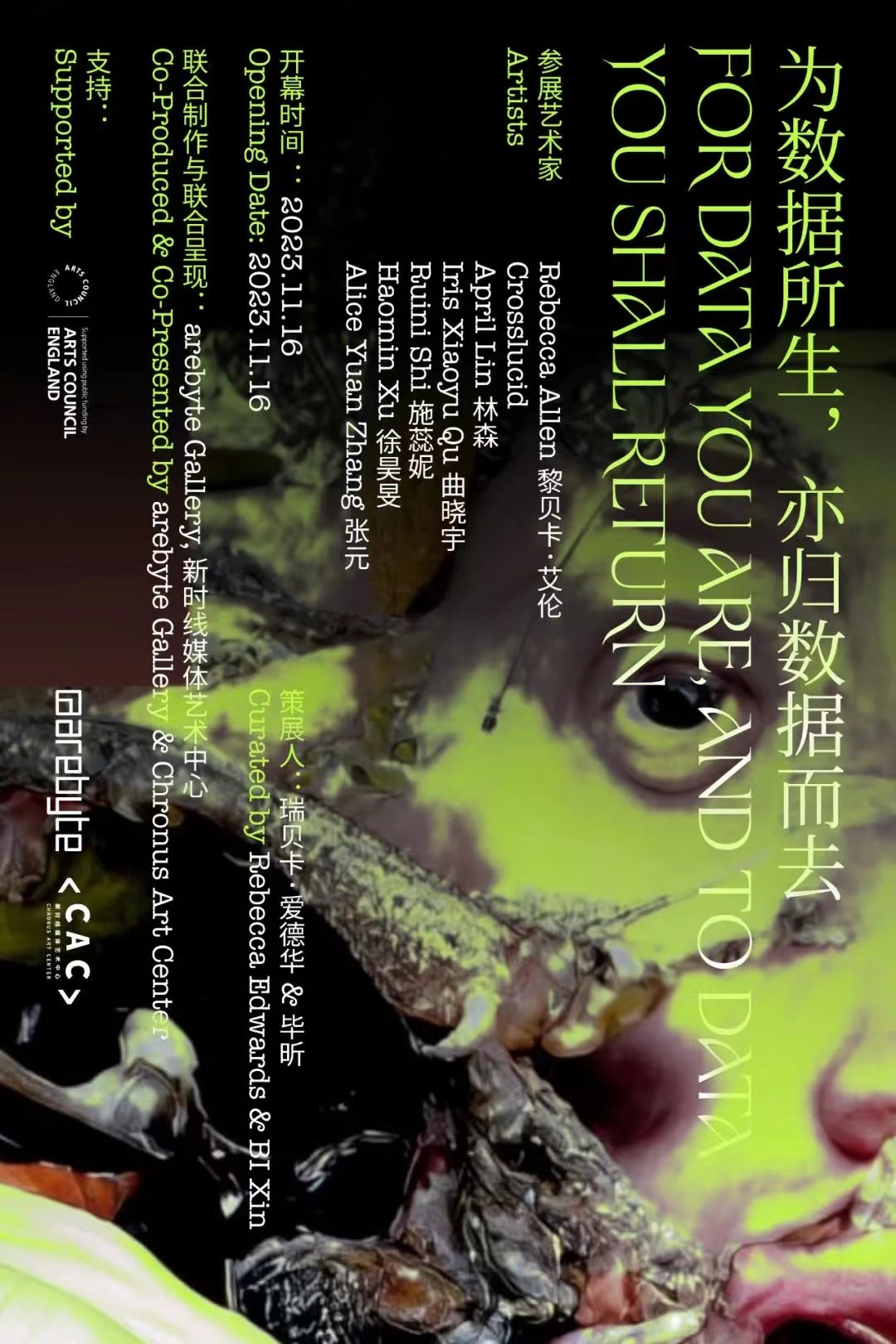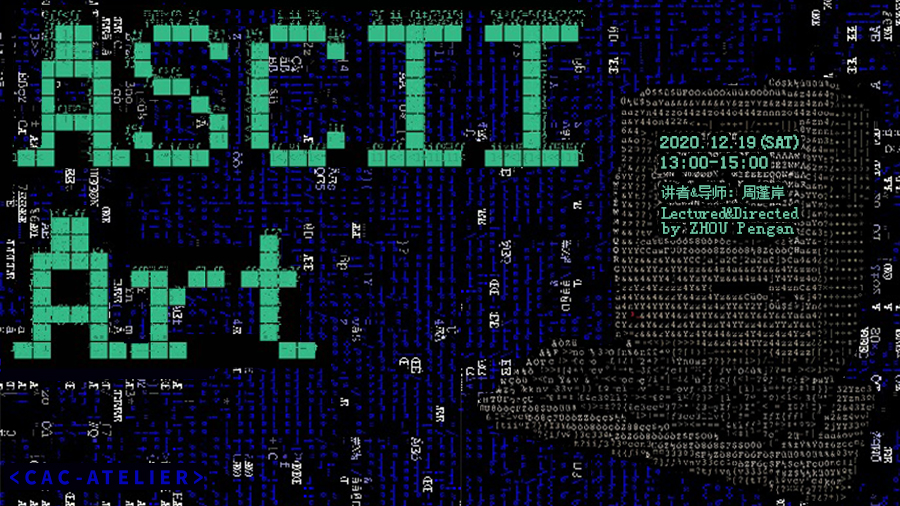
Chronus Art Center (CAC) is pleased to announce that the fifth Research/Creation Fellowship (USD$10,000) has been awarded to Mileece for her project proposal Bio-Semiotics AI. After the selection from a competitive pool of international applicants, Mileece begins her residency program from July 31. During the 3-month program, she will work closely with CAC to realize her project Bio-Semiotics AI.
Jury Statement
Chronus Art Center's fellowship program aims to support and advance research-based artistic practice, with a particular emphasis on artists who employ scientific methodologies and technological developments in the conception and production of their work. The selection was based on the strength of the proposed project and evidence of the candidate’s past accomplishments that demonstrate the potential to advance technical and artistic investigation related to CAC's research/creation lines of inquiry.
Mileece proposes to think about machines as a function of nature rather than frame them as strictly human-related and artificially-created objects. Bio-Semiotics AI conceptually blurs the ever thinner distinction between the natural and the artificial by bridging, through technological layers, certain aspects of the biosphere with intelligent, artificial agents.
In addition to the strong conceptual quality and artistic potential that Mileece’s proposal demonstrates, the project also catalyzes the development of a sonic and visual bio-semiotic generator, a tool for exploring new possibilities of harnessing biological intelligence in order to expand AI systems. In addition, the project will experiment with custom pattern-recognition systems, an audio synthesis engine to generate lingual-based sonification and an existing laser-based sonoluminescent transducer.
 Mileece: Tahitia Hicks, 2010 © Courtesy the artist
Mileece: Tahitia Hicks, 2010 © Courtesy the artist
About the Work
Bio-Semiotics AI by Mileece
Inevitably, artificial intelligence will eventually form its own identity. How that identity forms, however, will likely be determined to a significant degree by how we design its preliminary frame of reference. In essence, we are designing AI in our image. It is for this reason that we must examine what that image is and consider how its trajectory might diverge from what we need and desire for ourselves and our environment, if we hope to anticipate accordant AI.
Our common and most basic human nature is Biophilic. The original definition of ‘biophilic’ by Edward Wilson is “humans’ innate urge to affiliate with other forms of life.” Although it may be true that the human relationship to AI is an urge to affiliate, with regards to other forms of organic life, it is more accurate to define it as ‘an innate need to integrate.’
This is plainly illustrated by considering our collective need to breathe. As consumers of oxygen, our integration with plants and photosynthesising bacteria that produce all our planetary oxygen isn’t just an urge, but a common, irrefutable, irrevocable need, as it is for billions of other living creatures on Earth. We are in constant exchange with the biosphere as we breathe in and out, which we do as a function of life.
In this regard, we can and should look towards ourselves as being a form of nature, a nature able to make decisions, and a nature with agency upon its nature. “Machine” can thereby be considered a function of nature whereby our decisions to amplify our agency and drive the creation of technology, which is in turn subject to natural laws.
This project is about creating an alternative position to this viewpoint which although arguably crucial, is rarely engaged: that of the natural intelligence of the biosphere applied directly to AI. It seeks to engage the possibility of harnessing biological intelligence to iterate learning frameworks for AI with the least amount of human intervention, and thus introduce the biosphere’s integration with technology as a basis for expanding intelligence systems.
The result at month three will be a generative light and sound experience with occasional congruencies iterating as cross-modal, word-like bursts. Actual systems will be created and integrated in place, replicable and expandable by nature. The work will continue to self-orient towards greater expression and viability over time, with plenty of room for further contributions, refinement, collaboration and expansion

 Mileece: Tahitia Hicks, 2010 © Courtesy the artist
Mileece: Tahitia Hicks, 2010 © Courtesy the artist
About the Artist
Mileece is a sonic artist, composer, interactive ecology designer and clean-energy ambassador. She has helped pioneer the modern evolution of plant biofeedback, presenting PiP, her custom coded synths and hardware for plant bio-data sonification at an array of prestigious museums (MoMA, NYC), festivals (BHIF Festival, Bhutan), and venues (Kew Gardens, London). Her work in immersive installations, sonic design and composition, interactive sculptures, as well as original products, materials and instruments, are central to a series of highly lauded projects, including the Miracle Gro “Grow Something Greater” campaign, and her “Sonic Garden” installation for Sonos Studios.
As a composer and recording artist, her debut work Formations was critically acclaimed internationally, and heralded by the BBC as an “outstanding release, real musical science.” Her message of 'promoting ecology through technology and the arts’ guides her roles as Creative and Technical Director to several institutional collaborators and brands.
Currently, she is developing zero energy, network-based urban wilderness sanctuaries inside technologically augmented biodomes to help balance our modern lives with the needs and benefits of the biosphere.




